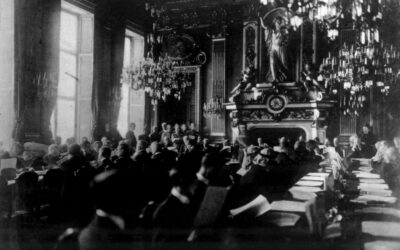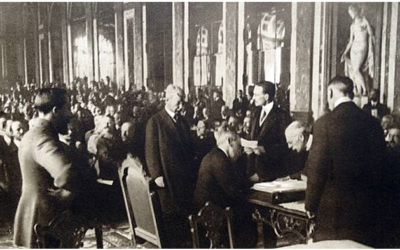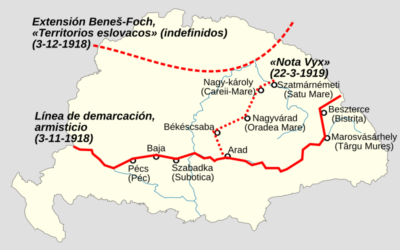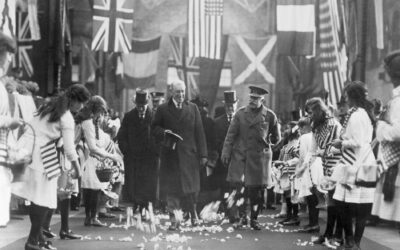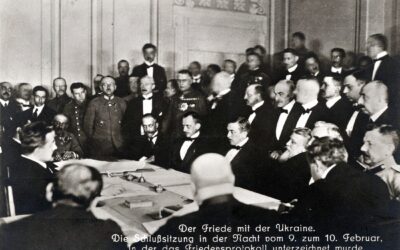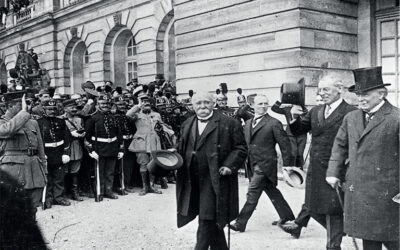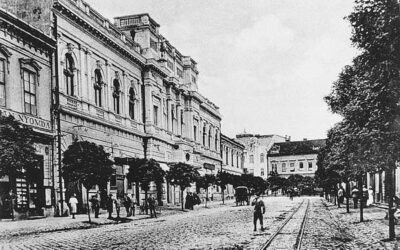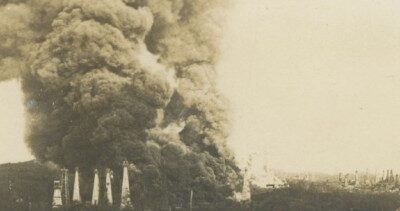Romania’s objectives at the Paris Peace Conference of 1919
Romanian Prime Minister Ionel Brătianu presented himself at the Peace Conference with an extremely well-established and precise plan. On December 14th, 1918, King Ferdinand appointed Ionel Brătianu to head the government. The news was not well received by the Allies,...
Romania, dissatisfied with the way negotiations were handled at the 1919 Paris Peace Conference
Ionel Brătianu, the Romanian prime minister, had a tumultuous relationship in Paris with the leaders of the Great Powers. He was deeply dissatisfied with the fact that the Great Powers did not recognize Romania’s equal status that would allow it to better promote the...
The Belgrade Convention and Romania’s interests
Romania was in a critical situation at the end of the First World War. With most of the country still occupied by the troops of the Central Powers, with its leadership in Iași and its army partially demobilized, Romania was forced to move as quickly as possible to...
The recognition of Romania as an ally of the Entente
Romania was officially recognized as an ally of the Entente at the end of December 1918 by France, Great Britain, Italy and the US, just a few weeks before the beginning of the Paris Peace Conference in January 1919. The decision of the Russian Bolsheviks to conclude...
What did Woodrow Wilson thought about the Russian Bolsheviks at the end of the First World War
US President Woodrow Wilson believed that the Russians alone had to find their way. He told a British diplomat in Washington a week before the end of the war that: “I think we have to let them find their own way out, even if they have been struggling in anarchy for...
The strategy of the Russian Bolsheviks in the negotiations of Brest-Litovsk
One week after the signing of the armistice between Russia and the Central Powers, negotiations between the two sides for the signing of a peace treaty began in Brest-Litovsk. The Bolsheviks successfully insisted that the talks be public, something never seen before...
The French and the Russian Bolsheviks at the end of the First World War
French Prime Minister Georges Clemenceau was uncompromising in his attitude towards the Russian Bolsheviks. For Clemenceau, Lenin and Russia had betrayed the cause of the Allies, leaving France at the mercy of Germany. The conclusion of the Brest-Litovsk Peace Treaty...
The Serbian invasion of Banat (II)
Just a few days before the end of the First World War, newly liberated Serbia sent its units to occupy Banat, taking advantage of the collapse of the Habsburg Monarchy. On November 15, 1918, the Serbs marched into Timișoara, inaugurating two and a half months of...
The Serbian invasion of Banat (I)
Just a few days before the end of the First World War, newly liberated Serbia sent its units to occupy Banat, taking advantage of the collapse of the Habsburg Monarchy. On November 15, 1918, the Serbs marched into Timișoara, inaugurating two and a half months of...
Sabotaging the German war machine: The destruction of the Romanian oilfields in November 1916
In order to prevent the use of Romanian oil by the Germans in the First World War, the refineries, wells, as well as the installations in the south-east of the country were destroyed in the autumn of 1916 by British engineers, with the consent of a relunctant Romanian...

